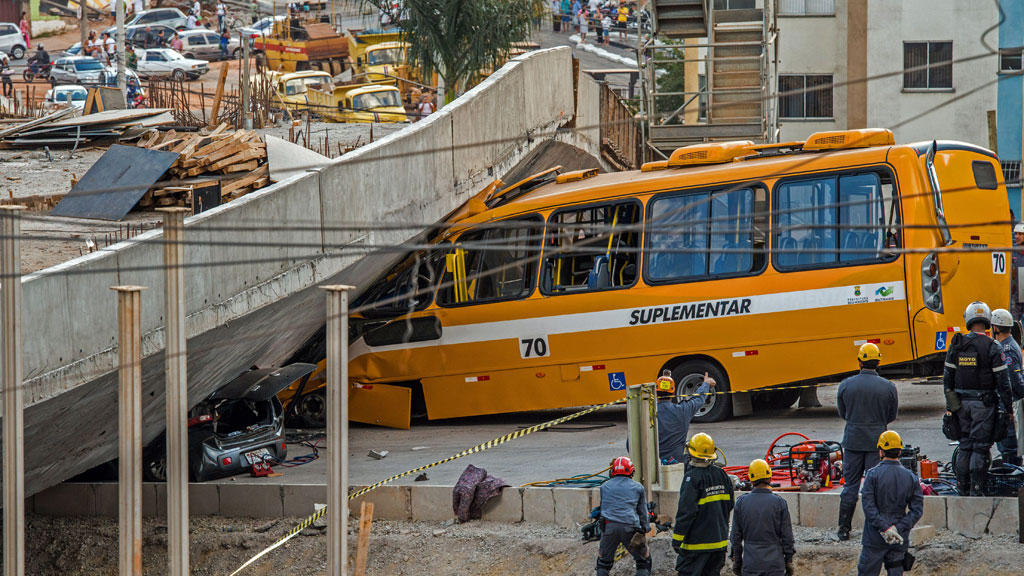Will protests follow the Brazil-Germany World Cup clash?
There has been speculation that anti-government protests could erupt if the host nation loses its World Cup semi-final clash against Germany. But is that likely?
So far, the World Cup has not seen a repeat of the mass protests that took place throughout Brazil during the 2013 Confederations Cup.
In Belo Horizonte, where Brazil play Germany at 9pm British time, an estimated 60,000 demonstrators gathered in a central square of the city in June 2013, with police using rubber bullets and tear gas to disperse them.
There was also unrest in Salvador, which hosted Brazil’s game against Italy. The host team won, but 5,000 protesters converged on the stadium, demanding better schools and transport and denouncing the vast sums spent on the 2014 World Cup.
Corruption
The big theme for the protesters was government corruption. On one day, Saturday 22 June, more than 250,000 demonstrators took to the streets in 100 Brazilian urban centres. They were the largest protests Brazil had seen in two decades.
For the government, looking ahead to the vastly expensive World Cup, the silver lining was Brazil’s victory over Spain in the final.
This time, the host nation has played well enough to reach the semi-finals, but winning the competition is not a formality, particularly without the services on Tuesday of talisman-forward Neymar (injured) and captain Thiago Silva (suspended).
With these two absent, Brazil could lose but save face, arguably making protests less likely.
In June, 200 protesters joined a march to the Mineirao stadium in Belo Horizonte. Fifeen of them were arrested with petrol bombs and knives, according to news reports.

But the most dramatic event in the city was the collapse on 3 July of a bridge being built to connect the airport to the stadium, resulting in two deaths (see picture above).
Small anti-government protests are planned for Tuesday, but Belo Horizonte’s World Cup organiser Camillo Fraga has said he does not envisage trouble if Brazil lose.
“If Brazil wins, it will be perfect, but if not, then they will have reached the semi-final so that will be respectable,” he said. “I have no concerns about the reaction. The climate has changed a lot since last year and now everyone has been really involved in the World Cup.”
Rio protests
Whether the peace holds for the rest of the competition remains to be seen. The final – between Brazil/Germany or Argentina/Holland – will be played in Rio on Sunday. Protests are planned, on a bigger scale than in Belo Horizonte.
According to Facebook, more than 1,000 people have indicated they will attend a demonstration organised by Frente Independente Popular – RJ at an unknown location.
Black Bloc anarchists are behind a planned protest outside the Maracana stadium before the final, with 400 people signalling their support on Facebook.
Another protest, in opposition to the use of force and violence against favela dwellers, has so far attracted backing from 700 people on the social networking site.
Fifa's hospitality partner MATCH has defended director Ray Whelan, who has been arrested in Brazil as part of an investigation into illegal ticket sales at the World Cup.
Mr Whelan, who is British, was arrested in Rio de Janeiro on Monday as part of an operation against ticket touting by the Brazilian police.
MATCH said in a statement: : "Ray Whelan has been released from police custody and will assist the police with further enquiries. MATCH have complete faith that the facts will establish that he has not violated any laws."